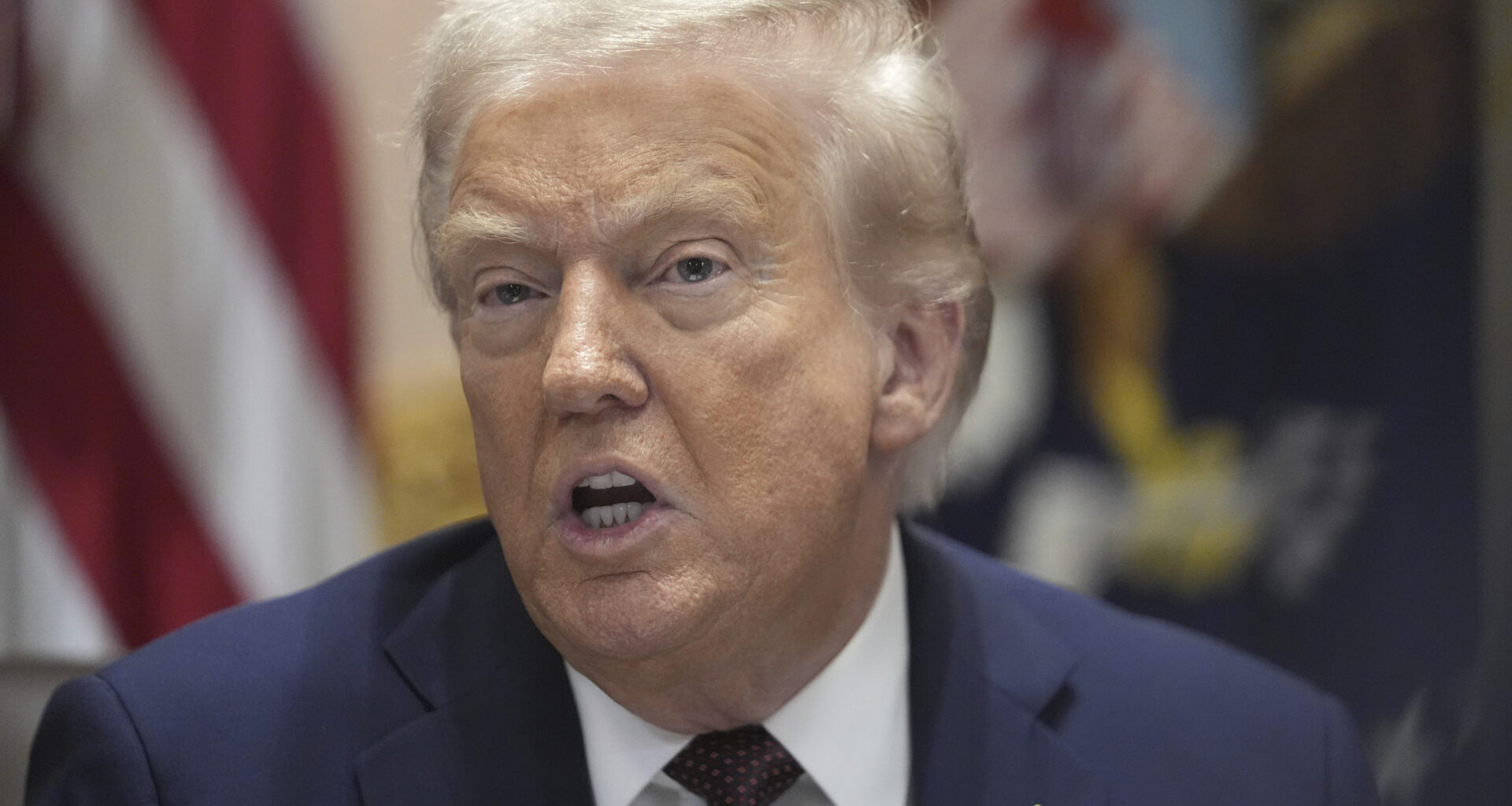Consumer confidence in the United States fell in August after a weaker-than-expected jobs report and amid President Donald Trump‘s new tariffs.
The consumer confidence index declined 1.3 points to 97.4 in August, The Conference Board said.
Why It Matters
Consumers surveyed referenced concerns about tariffs, high prices and employment, according to the business research organization The Conference Board.
The economy and voters view on it can play a major role in political clout carried by the president and lawmakers. The economy is often cited as one of the top issues for voters and public perception on the issue can heavily influence policy proposals and elections.

President Donald Trump speaks during a cabinet meeting in August at the White House.
President Donald Trump speaks during a cabinet meeting in August at the White House.
AP Photo/Mark Schiefelbein
What To Know
The Bureau of Labor and Statistics said the U.S. added 73,000 in the month of July. Most economists had projected job gains of at least 100,000 in July, according to The Hill.
Earlier this month, new tariffs of 10 percent or higher on goods from more than 60 countries took effect after months of delays and extensions.
“IT’S MIDNIGHT!!! BILLIONS OF DOLLARS IN TARIFFS ARE NOW FLOWING INTO THE UNITED STATES OF AMERICA!” Trump wrote on Truth Social on August 6.
The consumer confidence survey is a monthly report detailing consumer attitudes, buying intentions, vacation plans and expectations for inflation, stock prices and interest rates.
Dr. Clement Bohr, a senior economist with the UCLA Anderson Forecast, told Newsweek that the consumer confidence index took a “huge drop” when Trump first planned to impose the tariffs, but started recovering after consumers did not see immediate effects.
“Now, when people are also really not just hearing about these things that they did early on, but actually now they’re really seeing it in their own day to day lives, the survey index is starting to dive a bit again,” Bohr said.
Confidence fell for consumers under the age of 35, remained stable for consumers aged 35 to 55, and rose for consumers over 55, according to The Conference Board.
The present situation Index, which is based on consumers’ opinions of current business and labor market conditions, fell 1.6 points this month. The expectations index, which is based on consumers’ short-term outlook for income, business and labor market conditions, decreased by 1.2.
The number of consumers expecting a recession over the next 12 months increased to the highest level since a peak in April.
“We have seen more of a disconnect between these survey sentiment measure and what the state of the actual economy is,” Bohr said.
Bohr said the surveys are still important, but “I, and I think I speak for many other economists, are giving them less weight than what we have in the past.”
Consumers’ view of their family’s current and future financial situations both improved.
What People Are Saying
Alex Jacquez, Chief of Policy and Advocacy at Groundwork Collaborative, told Newsweek: “Consumer confidence is still well below the number that generally indicates an upcoming recession. Consumers expect prices to go up again after several months of easing, labor market expectations are souring, and recession fears are on the rise. No matter how many economic experts President Trump fires, he can’t hide the bad economic news from consumers.”
Dr. Clement Bohr, a senior economist with the UCLA Anderson Forecast, speaking about the expectations index to Newsweek: “Whenever that’s been below 80, that’s been a good signal of a coming recession over the next year. So based on historical patterns, that would suggest that one is coming, and therefore a lot of people are fearing a recession.”
Stephanie Guichard, Senior Economist, Global Indicators at The Conference Board, in a press release: “Consumers’ write-in responses showed that references to tariffs increased somewhat and continued to be associated with concerns about higher prices. Meanwhile, references to high prices and inflation, including food and groceries, rose again in August.”
What Happens Next
The next monthly consumer confidence survey is scheduled for release on September 30.
Do you have a story that Newsweek should be covering? Do you have any questions about this story? Contact LiveNews@newsweek.com.
Update 8/26/25, 4:40 p.m. ET: This article was updated with comment from Dr. Clement Bohr.

